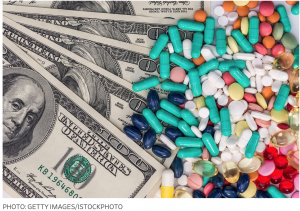Most people complain about the price of prescription drugs in our country. That’s why politicians, like former President Donald Trump, current President Joe Biden, and presidential candidate Governor Ron DeSantis all agree on the idea of importing less-expensive drugs from Canada. It seems to make perfectly good sense.
But a closer look can be revealing. The issue is more complicated that these politicians will tell you. By importing prescription drugs from countries with socialized healthcare systems, you are also importing their government price controls.
Last week the Food and Drug Administration approved Florida Governor DeSantis’s request to import drugs from Canada. The Wall Street Journal editors tell us DeSantis pitched the idea in 2019 to lower drug prices, and the Trump Administration teed it up for FDA approval with enabling regulations. “We will finally allow the safe and legal importation of drugs from Canada,” Mr. Trump said in 2020.
With this approval, Governor DeSantis is taking a victory lap. “Canada has the same drugs. They’re like 25 cents on the dollar, and part of that is because of the way their government suppresses the price,” he said in Iowa. “Bottom line is that if I can get 25 cents on the dollar, I can save $100 million, $200 million in Florida.”
Full disclosure, I have been a Governor DeSantis fan ever since the Covid pandemic, when he governed Florida better than any other state in the union. That’s why Florida is the number one state for Americans who choose to move from one state to another. But the governor doesn’t seem to appreciate the downside of his position on importing drugs.
The WSJ editors explain: “Drug importation has gained support among Republicans who say Americans are subsidizing drugs for the rest of the world. There’s some truth in this. Drug prices in Canada are more than 50% lower than in the U.S. That’s largely because Canada’s government can compel manufacturers of patented drugs to reduce their prices. But Americans also get access to more innovative drugs, and sooner. Drugs were approved 468 days earlier in the U.S. than in Canada for the 218 medicines authorized in both countries between 2013 and 2019, according to the Fraser Institute.”
In other words, there is a tradeoff, a price to be paid, for allowing price controls in the U.S. just like they have in socialized countries like Canada. The price is less availability of drugs, longer waiting times, and less new drug innovations. This can be extremely important in situations like the Covid pandemic when new, life-saving drugs are being developed and brought to the marketplace.
WSJ says Trump could have used trade negotiations to prevent Canada and other countries with drug price controls from extorting American drug makers and “free-riding” on Americans. Instead, his Administration issued regulation on how states could obtain FDA approval to import drugs from Canada. Biden then followed with an executive order directing FDA to work with states that have proposed importation programs. Florida is the first to gain approval, but Texas, Colorado, and New Mexico are hoping to join in soon. Florida says its plan could save $150 million annually.
But this depends on no changes in the current system. Drug makers say they’ll reduce sales to Canada if their products will be exported to the U.S. Furthermore, Canada has warned it would restrict drug exports to the U.S. to prevent shortages. In other words, the supply of drugs in the U.S. imported from Canada is likely to be limited.
All of this is an attempt to import foreign drug price controls that the U.S. Congress won’t accept. But trying to get around the system this way only undermines and erodes U.S. intellectual property protections of the pharmaceutical industry that are necessary to reward the great cost of innovation and investment in drug research.
The old saying, “There’s no such thing as a free lunch” still applies.


